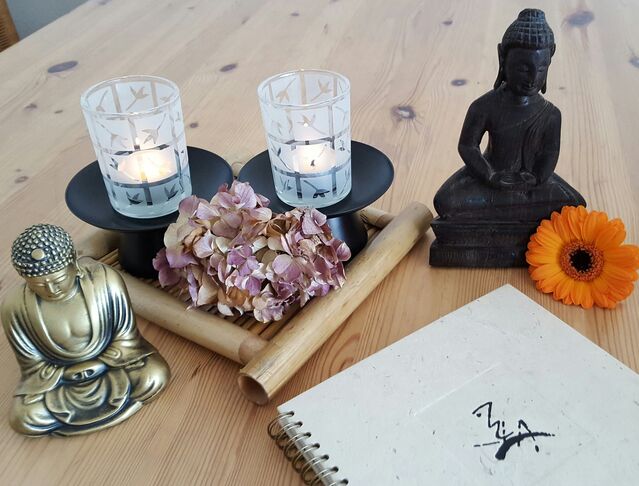Meditation
What Is Talking Meditation?
The benefit of slowing down the pace of communication.
Posted June 7, 2021 Reviewed by Abigail Fagan
Key points
- Many people speak quickly, without thinking deeply about their responses in conversation.
- Talking Meditation involves speaking slowly and taking time to process the other person's message.
- Making communication a more sacred act can strengthen relationships and increase intimacy.

Linda: I have seen very little written about Talking Meditation. So I was deeply moved and excited to hear therapist and author Sylvia Boorstein speak about it at Spirit Rock Center in Marin, California.
Boorstein described it as slowing down the pace at which we speak to deeply take in the message that the other person is offering, and to be with it for a moment before responding. In this way, the other person knows that we are paying close attention to their communication and are showing them the respect that they are due. We can form our response into a beautiful gift before sending back our next statements.
Many people speak so fast that they hardly think about what has been given to them before they fling back their response. When I slow down my communication with my husband, Charlie, or anyone else that I speak with using talking meditation, the nature of the interaction becomes more intimate. Consequently, the level of connection is more satisfying.
I don't like to waste time talking on the superficial level of a topic. I am much more interested in making my conversations count by speaking about what has meaning to me and to the one I am speaking with. The more I practice talking meditation, the better I like it. You, the reader, are probably doing some of this kind of speaking and listening already. It's just a matter of being more intentional about the use of this powerful method. I believe that when you do more of it, that you will derive satisfaction too.
We practice mindfulness when we slow down the pace of our interactions, pause and turn our attention inward before sending our message, and look inside after receiving another's message to note what we are experiencing. Contemplative talking has an especially strong appeal for extroverts, who will be relieved to know that we can move toward a more conscious state of being without a steady diet of silence!
Many couples speak to each other while they are emptying the dishwasher, doing the dishes, watching TV or other screens, or reading the newspaper. To make the commitment to be fully present when speaking to the significant people in our life is both a great healing to the relationship as well as a rigorous discipline in our spiritual practice.
Because communication is such an important part of relationships, bringing a sense of the sacred to our speaking is essential. To slow down the rate at which we speak, and to listen deeply, can be a holy practice. For many people, an area of great distress is that they do not feel that they are heard. To deeply receive the communication of the other, and to practice holding their communication inside their heart before responding, allows the other person to know that their thoughts and feelings are important to us. Their message is important enough that we will give it our full attention.


